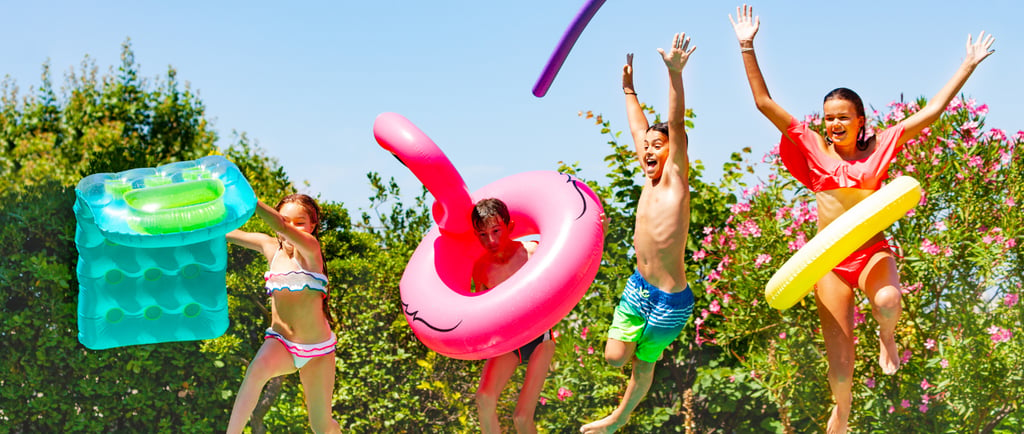Summer Playbook: Fun and Engaging Ways to Keep Sports Alive When School’s Out
Summer's not just for sleeping in—it's a secret weapon for fun, skill-building, and creating memories that keep your young athletes coming back for more.
5/29/20254 min read


Summer can be a game-changer—literally—for young athletes. With school on pause, schedules loosen up, and families breathe a little easier (most days). But for coaches, especially parent-coaches who volunteer their time, summer can be a golden opportunity to keep kids learning, developing, and most importantly—loving their sport. Without the structure of a full season or back-to-back games, this is your chance to lean into creativity and spark genuine growth in a fun, relaxed way.
Let’s explore how you can turn summer into your team’s secret weapon for long-term development.
Let Kids Lead with Unstructured Play
One of the most undervalued forms of training is simple, unstructured play. No drills. No whistles. Just kids doing what kids do best—playing. Letting athletes experiment, compete, and make up their own games helps develop instincts and creativity in ways formal practices sometimes can’t.
Pickup games in the backyard, local park scrimmages, or “free play Fridays” are low-stress, high-impact options. The freedom to explore their sport in their own way can reignite passion and deepen understanding without them even realizing it.
Tip for coaches: Suggest one unstructured game or play idea each week in your team group chat to inspire families to get moving.
Challenge Them with Weekly Skill Missions
Summer doesn't mean ditching development. In fact, it’s a perfect time for individualized growth. Create weekly skill challenges for your players that they can do at home—dribbling through cones, juggling a ball, shooting drills, balance workouts, or even game scenario thinking.
Gamifying these challenges (think: beat your personal best, sibling showdowns, or parent participation) keeps it fun while also building confidence.
Bonus idea: Have players record their progress or wins and share them in a private team chat or app to foster accountability and encouragement.
Mini Camps & Weekend Clinics—Short but Sweet
Don’t underestimate the power of a few focused hours. Whether it’s a Saturday morning skills session or a weekend team-building clinic, shorter summer camps can help your players sharpen specific parts of their game while maintaining chemistry with teammates.
You don’t need a formal facility or professional trainer to pull it off. Just pick a theme (passing, communication, defense) and build a few game-like activities around it.
Coach-to-coach tip: Partner with another team in your area to add variety and fresh energy. The kids will love it.
Encourage Cross-Training and Multi-Sport Exploration
Summer is the time for variety. Youth athletes—especially those under 14—benefit significantly from trying multiple sports. Research from the American Academy of Pediatrics suggests early sport specialization can lead to burnout and overuse injuries. On the flip side, multi-sport athletes often perform better in the long run, both physically and mentally.
Swimming, martial arts, dance, tennis, hiking—whatever helps improve coordination, agility, or endurance can contribute to your athlete's growth.
Pro tip: Frame this as “off-season training” with a twist. Let them know it’s all connected.
Go Digital Without Overdoing It
While screen time can be a battle, using tech for skill development can keep athletes engaged on their own terms. There are plenty of youth-friendly apps and video tutorials that break down fundamentals or provide challenge-based learning.
If you run a team page, use it to post a weekly workout, share a highlight video, or offer motivational shoutouts.
Simple idea: Create a “Summer Skill BINGO” card and challenge players to fill it in by completing different drills or fun fitness tasks.
Host Family-Inclusive Events
Need to keep things light and social? A family scrimmage night or obstacle course competition is a hit for all ages. These events reinforce the idea that sports are meant to be shared and enjoyed—an important message for both kids and parents.
Not everything has to be competitive. Sometimes laughter, water balloons, and popsicles can teach teamwork better than any chalkboard.
Teach Goal Setting—Summer Edition
The downtime of summer gives players a chance to reflect and reset. Encourage them to set small, attainable goals—like improving their non-dominant hand, logging 10 minutes of practice a day, or playing a new position.
Setting and achieving small goals helps players build confidence and develop ownership of their progress—key elements of long-term success.
Coach’s reminder: Be their biggest fan, and remind them that small wins stack into big results.
Give Them Tools to Practice on Their Own
One major win you can hand to your players? Independence. Create a simple workbook or Google doc with at-home drills, stretching routines, or creative challenges. You don’t need anything fancy—just clarity and encouragement.
Include explanations, maybe even diagrams or links to short demo videos, so they feel empowered to take the lead.
Encourage Journaling and Reflection
It might not sound exciting to a 10-year-old, but journaling has serious benefits for young athletes. Writing down how a practice or activity made them feel can increase self-awareness, help manage emotions, and reinforce learning.
You can offer a few reflection prompts like:
What was my favorite part of today?
What did I learn?
What challenged me, and how did I respond?
And hey—parents might learn something too.
Make Fun the Priority
Above all else, remember that if summer training doesn’t feel fun, it’s probably not working. Young athletes need joy, freedom, and room to grow at their own pace. Don’t worry so much about keeping them in mid-season shape. Instead, keep them moving, exploring, and smiling.
When kids associate sports with good vibes, they’re more likely to stick with it long-term—and that’s the real win.
Final Whistle
Summer doesn't have to be an “off” season. With a little creativity and flexibility, it can be one of the most impactful parts of a young athlete’s development. Whether it’s skill-building, cross-training, or simply staying connected to the team, there are countless ways to help kids grow while school’s out.
And the best part? You get to show them that learning and laughter go hand-in-hand—even in sports.

